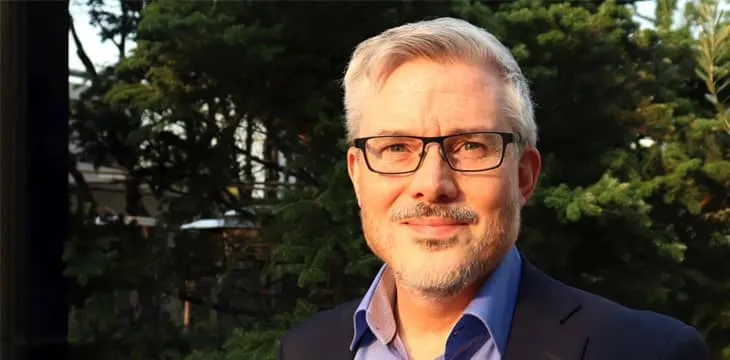|
Getting your Trinity Audio player ready...
|
Entrepreneur Stephan Nilsson claims that in efficiency terms 80 per cent of supply chain operations are waste. It’s “making the whole world economy stagnate,” he says. Nilsson should know because he worked in the industry before he founded his startup, UNISOT. He still works in it—except now UNISOT is offering a blockchain solution to address that inefficiency.
UNISOT will be a “communication layer” using the Bitcoin SV blockchain to record operations performed by different businesses on a unified system that they can all trust.
“We humans, we have Facebook and Twitter and all of these social media. We are sharing tons of information with each other,” he says. “Companies are not doing that—because they only have this EDI [electronic data interchange] communication, which is slow and expensive. That is what is missing in the industry.”
Nilsson’s ambitions combine success for UNISOT with a wider, more philanthropic approach: “We don’t do this just to make a ton of money and get out of it. We actually have a purpose of making the world and the supply chain better.”
If he can persuade companies that currently use different systems to record data in a single supply chain to move onto UNISOT’s BSV-based system, he’s convinced it will mean greater security for all of them: “If all the different providers in the supply chain are using this system, then it gets very hard for one actor to manipulate the information.”
And he sees his own efforts to utilise the BSV blockchain as just one example of a general trend towards creating accountable data—and that’s a shift from the emphasis on Bitcoin as an alternative currency. “Instead of this digital currency that we were talking about in the beginning, it’s now a data layer.” But “the unique thing is that we have built in payment systems, which means that we can now start monetising information.” The Internet revolution allowed anyone in the world to publish information. “But if anyone can publish anything, we also get a lot of very bad information in there. What we need to make the Internet good again is to actually value information.”
In selling his ideas to business, Stephan has found he’s up against some preconceptions that he has to dispel. “Most of the big companies today have already been educated by IBM and the big companies that you should have a private blockchain. Then we have to start educating them in the problems with private blockchains and why we are using a public blockchain. As soon as you say it’s Bitcoin, the question is raised about its inability to scale, and that ‘it’s only used by criminals, you can’t store information there.”
But the facts usually allow the discussion to move on: when they hear that today BSV is doing 15,000 transactions per second, he says, “most of the time we get a positive outcome from that.”
Hear more from Stephan Nilsson in this week’s CoinGeek Conversation podcast:
You can also watch the podcast video on YouTube.
Please subscribe to CoinGeek Conversations – this is the eighth episode of the podcast’s second season. If you’re new to it, there are 30 episodes from season one to catch up on.
Here’s how to find them:
• Search for “CoinGeek Conversations” wherever you get your podcasts
• Subscribe on iTunes
• Listen on Spotify
• Visit the CoinGeek Conversations website
• Watch on the CoinGeek Conversations YouTube playlist

 09-15-2025
09-15-2025 





